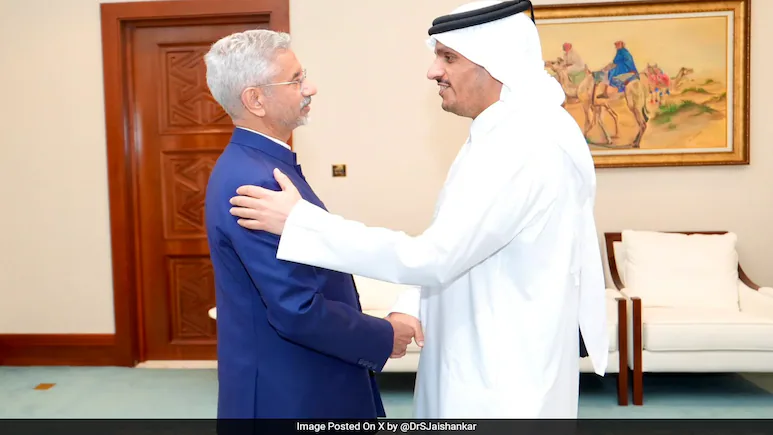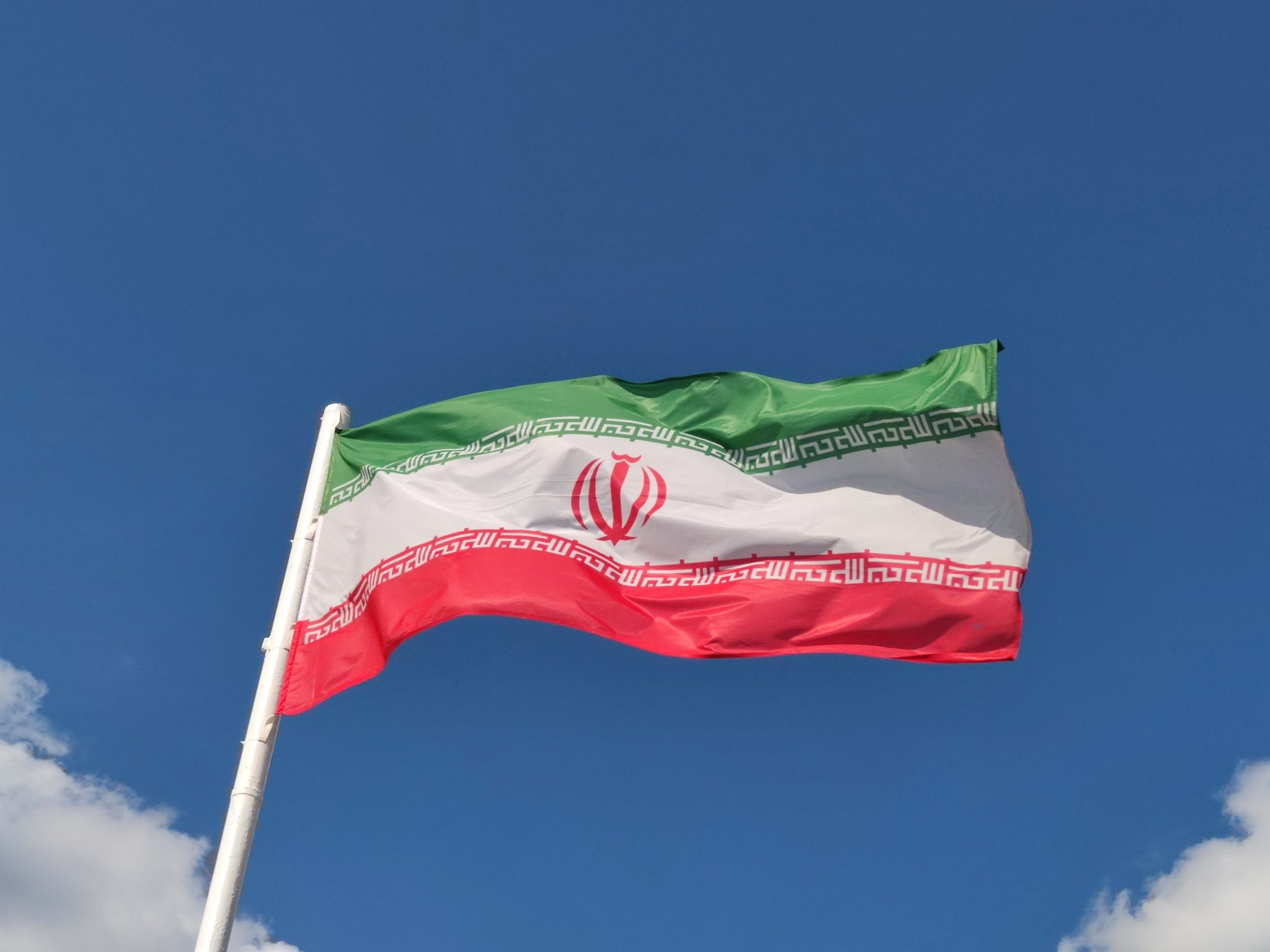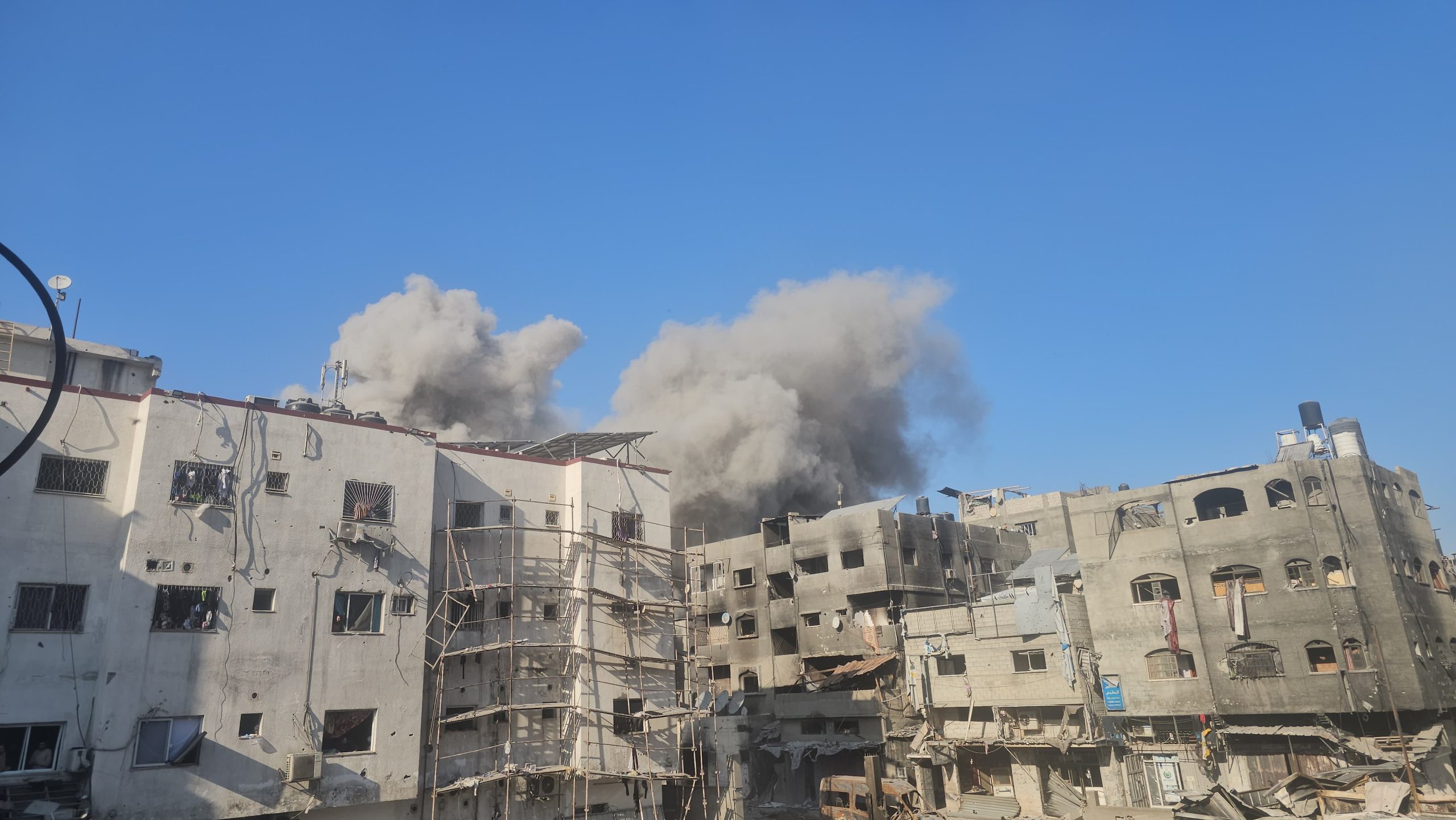A new report by The Hague-based watchdog held the regime accountable for the deadly massacre.
Qatar expressed its “full support” for global efforts to hold Syria’s Bashar Al Assad regime accountable for “horrific” Douma chemical attack in 2018 following new evidence of use of chemical weapons against civilians.
In a statement on Saturday, Qatar’s foreign ministry stressed the need “to prosecute war criminals in Syria before the international justice”, citing new findings of the Organisation for the Prohibition of Chemical Weapons (OPCW).
“The Ministry of Foreign Affairs affirms that the recent report of the Organisation for the Prohibition of Chemical Weapons, which concluded that the Syrian regime was responsible for the heinous attack on the city of Douma, reveals to the world once again the ugliness and brutality of this unscrupulous and inhumane regime,” the statement read.
The statement added that the regime “continues its horrific policy of massacres, scorched land and destroyed cities” while crossing “all red lines imposed by morals, and required by law.” It also renewed the need for a political solution in Syria.
However, it said “any political solution in Syria will not lead to a successful and sustainable outcome without holding those involved in the commission of these atrocious crimes accountable,” Qatar’s foreign ministry said.
The statement comes as Qatar staunchly refuses to normalise with the Assad regime for its ongoing crimes against Syrians as countries in the region, namely the United Arab Emirates and Jordan, reestablishe ties with Assad.
Deadly attack
Backed by Russia, the Assad regime led a chemical attack on the Syrian city of Douma, where at least 70 civilians were killed. Moscow, however, denied the use of chemical weapons, accusing the OPCW of providing factual and technical errors.
Under the latest and third report from The Hague, the OPCW Investigation and Identification Team (IIT) concluded on Friday that “there are reasonable grounds to believe that the Syrian Arab Air Forces were the perpetrators” of the deadly attack.
Some of its findings pointed to the presence of “at least one helicopter” belonging to the Syrian “Tiger Forces” Elite Unit which dropped two yellow cylinders containing toxic chlorine gas on two civilian-inhabited apartment buildings.
“The use of chemical weapons in Douma – and anywhere – is unacceptable and a breach of international law,” Ambassador Fernando Arias, OPCW Director-General, said.
The IIT’s findings come after a thorough analysis of at least 70 environmental and biomedical samples, 66 witness statements, and other verified data, such as forensic analysis, satellite images, gas dispersion modelling.
“The IIT considered a range of possible scenarios and tested their validity against the evidence they gathered and analysed to reach their conclusion: that the Syrian Arab Air Forces are the perpetrators of this attack,” the report said.
Commenting on the findings, Arias said that it is now “up to the international community to take action, at the OPCW and beyond.”
Qatar’s support for Syria
Syria has been mired in an ongoing war and a worsening humanitarian crisis since Assad started violent crackdowns on peaceful protests in 2011 during the Arab Spring.
At the height of the uprisings, Qatar shut down its embassy in Syria and openly called on Assad to step down. It was also the first country to establish an embassy for the Syrian opposition.
The Arab League had suspended Syria’s membership during the revolution from the bloc due to Assad’s ongoing war crimes against civilians.
The war has forced Syrians out of the country and created a major refugee crisis. By 2021, the registered number of refugees reached 6.6 million.
In addition to the shelling of civilians, the Assad regime has carried out horrifying methods of torture, some of which were exposed in 2014 through the Caesar photographs.
Leaked by a defected Syrian military photographer, more than 28,000 photos of deaths under government custody displayed the cruelty of the regime.
A 2017 Amnesty report has also found that at least 17,723 people have been killed in the regime’s custody between March 2011 and December 2015, with an average of 300 deaths occurring each month.
The UN said last year that a total 22 million people have been displaced as more than 100,000 are missing or forcibly disappeared. The country’s poverty rate has also reached 90%, with 14.6 million people depending on humanitarian aid.







